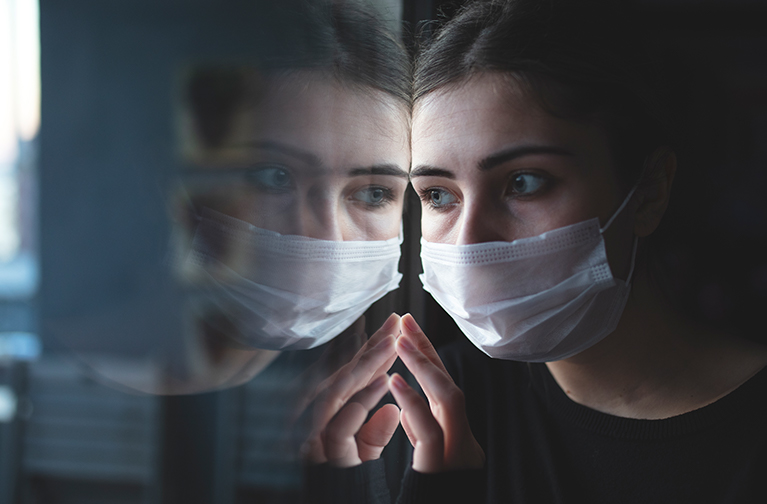Covid-19: Long-Term Effects on Mental Health
Though we’re still learning about the long-term effects of the Covid-19 virus, and likely will be for quite some time, what we have learned from both recovered patients and long-haulers (or people who have not recovered from Covid-19 for weeks or months after first showing symptoms) is the serious effect that the virus has on mental health.
In her article “Coronavirus: The possible long-term mental health impacts,” journalist Maddy Savage found that alongside mental health issues like general anxiety and chronic loneliness, psychologists are anticipating a significant rise in obsessive-compulsive disorder (OCD), a repetitive — and oftentimes, uncontrollable — anxiety disorder. Steven Taylor, author of The Psychology of Pandemics, further explained that it is likely that “‘people with a genetic predisposition toward some forms of OCD… will become chronic germaphobes unless they receive appropriate mental health treatment [due to the stress of Covid-19].’”
Grief, stress, and anxiety have also all become much more commonplace for most after over a year of cancelling plans, social distancing, Stay-At-Home orders, and losses of loved ones. Moreover, recovering from these conditions has become arguably more difficult than before, since most people have had to do so in isolation for so long.
Financial hardship has also been more widespread since the start of Covid – by June of 2020, almost 16 million Americans had been laid off because of Covid. According to the American Psychological Association:
“[The] mental health impacts of today’s job losses are likely to be significant, given a large body of research showing that unemployment is linked to anxiety, depression and loss of life satisfaction, among other negative outcome… [especially being that] the COVID-19 crisis [has created] economic upheaval unlike any seen since the Great Depression.”
Itai Danovitch, MD, of Cedars-Sinai noted, “that [historically,] past traumatic experiences – like major natural disasters and previous public health crises – have been associated with increased rates of substance use, post-traumatic stress and depression.” For example, BBC found that the SARS global outbreak of 2003 was correlated with a 30% increase in suicides in elderly people, and a 25-year retrospective review of the psychological consequences of Chernobyl found that first responders who assisted had higher rates of depression and PTSD almost 20 years later.
Even if you yourself haven’t experienced physical symptoms of Covid-19 (perhaps you were asymptomatic when you were initially diagnosed) it’s important to be mindful of the effects that Covid has likely had over your overall wellbeing, especially your mental health. That’s why Healthpointe has created the Covid-19 Recovery Program – we know that lingering symptoms and other complications can continue to fester Covid victims for months after the virus has been eradicated from the body, and we want to help you bounce back to being your best self, both physically and mentally.
While we do perform evaluations for lingering physical symptoms like pain, shortness of breath, loss of sense of smell and/or taste and more, we also perform evaluations for mental ailments that could have been brought on by Covid-19, like anxiety, depression, mental fogginess, and memory problems.
Our innovative Covid Recovery Program features the expertise of multiple medical professionals from a wide-range of fields, including board-certified neurologists, pain management physicians, ENT physicians, physical therapists, chiropractors, psychologists, orthopedic surgeons, and more.
At Healthpointe, your treatment will be customized to meet your specific needs, one day at a time, so that you can find a new normal that is happy and healthy.
If you are ready to receive treatment for your COVID-19 symptoms, you can call (800) 956-2663 or schedule an appointment here. Find out more about Healthpointe here.
